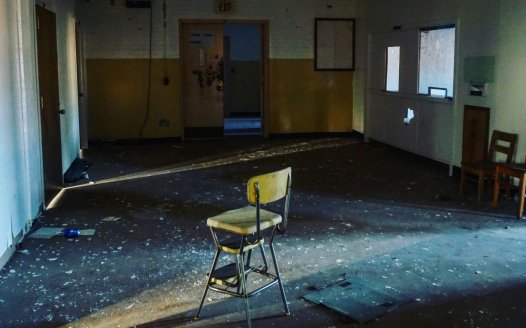Never mind joining SACREs, we should be abolishing them
Posted: Fri, 21st Jul 2017 by Keith Sharpe
A parent's legal challenge to the exclusion of a humanist representative from the local body responsible for overseeing religious education highlights the need for urgent reform of this contested area of the curriculum, argues Keith Sharpe.
A humanist parent is to challenge the Vale of Glamorgan Council at the High Court in Cardiff over its refusal to allow a humanist representative to join the local SACRE (the body which oversees RE in a local area). This focuses public attention once more on the anachronistic and dysfunctional arrangements for religious education in this country.
Almost thirty years ago the 1988 Education Act enshrined for the very first time in England and Wales the principle that every child in the country should receive a basic unitary national curricular entitlement during the years of compulsory schooling, as a matter of right as a future citizen. Hitherto all the curricular content had been determined locally, by local education authorities, individual schools and teachers using their own professional judgements. By 1988 the inequalities, injustices and inefficiencies of this local provision were widely recognised, and the then Prime Minister, Margaret Thatcher, and the Secretary of State for Education, Kenneth Baker, were resolved to replace it with a truly national system offering the same rights to all pupils wherever they live.
However, the one exception Thatcher and Baker allowed was the subject called Religious Education. The 1944 Education Act had established a compromise position with regard to the control of schools, between the state on the one hand and churches and other religious organisations, who had had a historic role, on the other. And part of this compromise was the setting up of local 'Standing Advisory Councils on Religious Education' (SACREs) to advise and monitor local education authorities and state-funded schools on the content of Religious Education. The 1988 Education Act permitted this local determination to continue undisturbed, even while national curricula for all other subjects were put in place.
In the 21st century there is no social or educational rationale for the continuance of local determination of religious education. It exists as a problematic hangover from history which survives merely because of the privileged position of churches and other religious organisations in our society. In contemporary Britain there is no justification for making any subject of the curriculum 'reflect local circumstances'.
In the three decades since the 1988 Act there has been growing public resentment against 'postcode lotteries' in a range of service areas. The local determination of the Religious Education curriculum by SACREs is a prime example of exactly such a lottery. It is probably now the mainstream view in the country at large that such irrational local variation is unacceptable. Nobody would suggest it would be sensible to teach decimals in Doncaster but not in Dunstable. By the same token it cannot possibly be reasonable that Buddhism be taught to children living in Bradford but not to those living in Bognor Regis. Surely if there is a body of knowledge called 'Religious Education', which is worthy of being taught at all, it should be offered to all children wherever they live? There are simply no grounds for discriminating on grounds of geographic location. If Religious Education deserves to be included in the school curriculum it should be offered to all as a basic entitlement for every future citizen. This is simply a matter of fundamental justice and equality.
Unfortunately there are still some prepared to defend the unfair arbitrariness of local determination. Paul Smalley, chair of the National Association of SACREs, said in response to the humanist challenge that membership of SACREs "should reflect broadly the proportionate strength of the denomination or religion in the area". Therefore, he added, "it would seem that in deciding whether to appoint a humanist representative an authority must satisfy itself that humanism is an 'other religion' that is part of the make-up of the principal religious tradition in the area, that humanist representation would reflect the strength of humanism in the area and that the person has authority to represent that tradition."
This statement is really quite preposterous and pretty much sums up everything that's wrong with religious education. RE should equip children with knowledge about and understanding of all the major religious and philosophical traditions, beliefs and values which have shaped human culture and history. It is particularly important for pupils to learn about religious cultures which are different from their own. What Mr Smalley advocates is the exact opposite and will lead at best to the reinforcement of particular religious beliefs and at worst to the inculcation of particular religious dogmas. This is the antithesis of education.
The current NSS campaign 21st Century RE for All seeks to give every pupil the same entitlement to high quality, non-partisan education about religion and belief. We want all children to appreciate the diversity of religious and non-religious worldviews in modern Britain. We believe that local determination should be ended and the SACREs abolished. Our view is that the construction and content of any nationally taught subject covering religion or belief should be determined in exactly the same way as other subjects, involving consultation with teachers, subject communities, academics, employers, higher education institutions and other interested parties, none of whom should have undue influence or veto.
Of course it is right that non-religious worldviews such as humanism should be included in any such curriculum. But in order to give it its proper place in the curriculum, humanists should not seek to create an 'other religion' and participate in the failing and discredited system of SACREs, but rather join us in calling for their abolition and the establishment of a universal national RE entitlement.







